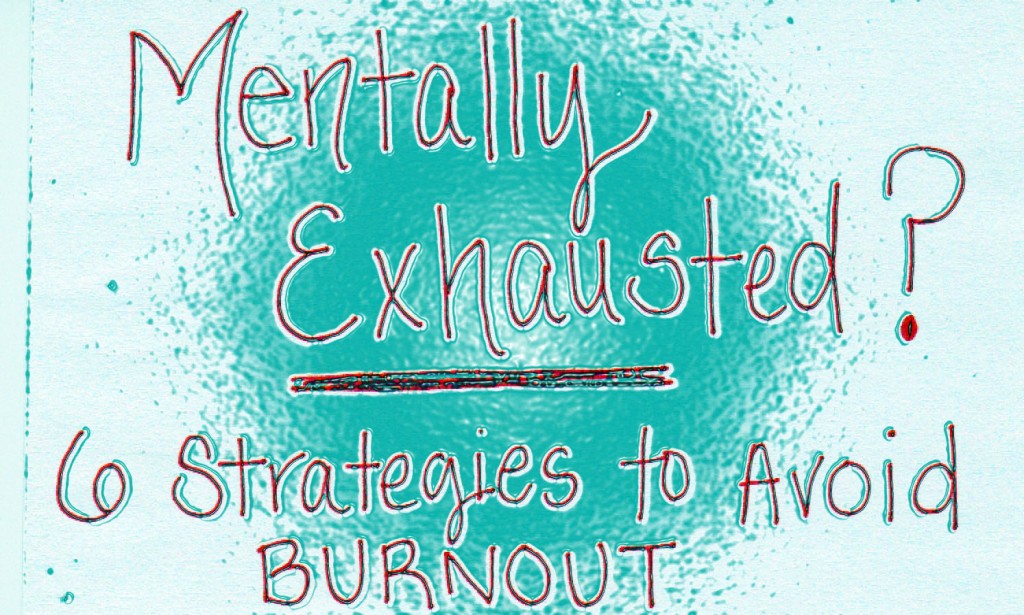Mental exhaustion. Fatigue. Lack of joy in work. Most of us have dealt with one or all of these at some point in our careers. I know I have.
At those times, I’ve learned to step away and reassess. When I come back to my work, I’m refreshed and refocused.
Avoiding mental (and sometimes physical) exhaustion—also known as burnout—is important for any professional, and especially writers and editors. So, this week, I’ve invited freelance editor Kim Foster to share some strategies to avoid the dreaded burnout as you work toward your career goals.
—
We’ve all experienced stress at different levels, but what about when we start to feel tired all the time, and life just doesn’t seem to be as enjoyable as it once was?
It’s possible you may be feeling the effects of burnout—a state of physical, mental, and emotional exhaustion caused by excessive and prolonged stress.
Burnout empties you in every way, affecting not only you but those close to you. Having experienced burnout at its finest, I am very protective of my environment and work schedule. I was able to completely recover and regain joy in my life and work. Here are six strategies to help you avoid burnout in your own life.
#1 Set reasonable goals for the day
How much do you want to accomplish today? Evaluate your expectations. Are they reasonable?
#2 Work at a sustainable pace
How many hours can you work with a clear mind? Is your pace allowing you to be the most efficient possible? Overall, look at the broad picture and make decisions on how you want your life to look like. Only you can truly decide what the best pace is for you.
#3 Establish boundaries with your time and the amount and type of work you accept
Are you going to let clients call after hours? When do you want to return e-mails? Do you use a contract to clearly set forth your expectations, as well as of your clients? Making these decisions ahead of time clears the way for less stress.
#4 Develop interests outside of your work
What activities give you a creative outlet? Is there something you’ve always wanted to learn? Spending time pursuing your interests will make you a happier and better well-rounded individual.
#5 Take breaks
Are you drinking enough water? If you’re not regularly exercising, are you at least moving around more? A change of pace and environment will often clear your head. Do you have healthy snacks on hand for a pick-me-up or when hunger strikes before mealtime?
#6 Take time to evaluate your work and career
Have your priorities changed? Do you need to adjust your work to match your priorities? Are you being challenged? Are you overburdened? Overall, do you like what you’re doing?
The wonderful news is that burnout is preventable and reversible. Take the time to reflect on your life and decide if it’s all you want it to be. If it’s not, make a plan to change it. It’s definitely worth the effort.
Here are a few additional resources for recognizing and avoiding burnout:
- http://www.helpguide.org/mental/burnout_signs_symptoms.htm
- http://www.huffingtonpost.com/paula-davislaack/job-burnout_b_3530660.html
- http://www.realsimple.com/work-life/life-strategies/job-career/avoid-work-burnout-00100000082275/
What strategies can you add? How do you avoid burnout in your work or personal life?
 Kim Foster is a freelance editor who is passionate about the written word and discovering wonderful authors. She loves a good cup of coffee and a stack of books to read. To learn more about Kim, visit her website at kimfostereditor.com.
Kim Foster is a freelance editor who is passionate about the written word and discovering wonderful authors. She loves a good cup of coffee and a stack of books to read. To learn more about Kim, visit her website at kimfostereditor.com.

It’s like this post was written just for me! I have two young children and am up writing when they sleep, this is even harder when they wake up during the night because it means I hardly get any rest. Need to review the load, #1 is a biggie for me.
Yes, kids waking through the night makes it tough. I am always struggling to feel rested, especially when my 15-month-old decides to wake up multiple times a night for a month straight. And I agree, #1 is important!
Hi, Naomi. Trying to work and be a mom is not easy. I admire your priorities. It does become quite a balancing act with work and kids. Even though my family has moved on and had families of their own, I still need to take the time to evaluate what’s reasonable. I guess I always will!